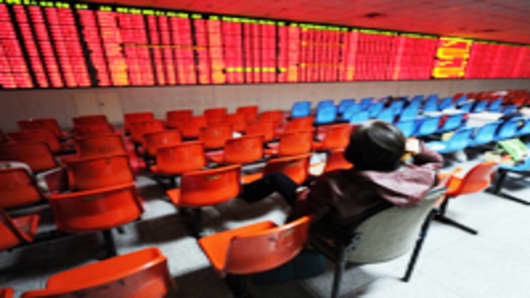Chinese financial officials have started a global roadshow to persuade foreigners to invest in the country’s stock market, a highly unusual move that reflects concerns that investors are turning their backs on China as its economy slows.
Officials from the Shanghai and Shenzhen stock exchanges are touring Europe, the US and Japan to meet institutional investors, according to three people briefed on the programme.
The attempt to drum up interest in China’s markets is a remarkable U-turn from just a couple of years ago when Beijing worried that foreign investors would swamp China with cash and thus had to be restricted under a strict quota system.
Foreign institutions were allowed to invest a combined total of no more than $30bn in China’s capital markets until April this year when the limit was lifted to $80bn. The securities regulator had hoped that the higher ceiling would lead to a big jump in applications from investors wanting a share of the quota, but it has instead been surprised by the relative quiet, according to a government adviser.
“They think it is mainly because of the global economic slowdown but they also think that China’s own growth prospects are having an impact,” he said. Even before the economy’s current slowdown, Chinese shares had been among the world’s worst investments.
The Shanghai Composite Index, the country’s main stock index, dropped 14 per cent in 2010 and 23 per cent in 2011. It has retreated a further 6 per cent this year.
Foreign investors and analysts say that a big part of the problem is that China’s stock market operates like a rigged casino, with rampant insider trading and weak corporate governance.
Moreover, it is effectively impossible to short Chinese stocks in the onshore market, making for a long-only proposition that is unattractive to many investors.
Guo Shuqing, who was appointed China’s chief securities regulator late last year, has set out to reform the country’s markets, vowing to rid them of insider trading and to attract more institutional investors instead of the day traders who currently dominate it.
On the roadshow, the representatives of China’s stock exchanges have been meeting every day with nearly 10 foreign institutions, including pension funds and insurance companies.
The reforms being pursued by Mr Guo have been touted as a major selling point for Chinese stocks. “His focus on speeding up reform of the market, his emphasis on corporate governance and his advocacy of institutional investors all accords with the priorities of sophisticated overseas investors,” a second adviser said.
A third person said that Mr Guo was under heavy pressure to try to stabilise China’s stock markets, which have been falling for four months, ahead of the country’s once-in-a-decade leadership handover that is scheduled to take place next month.
As part of his drive to stabilise Chinese share prices, Mr Guo has greatly sped up the process by which foreign investors are granted licences to access the country’s stock market.
To widen the pool of investors, the regulator has also lowered the required level of assets under management for foreign institutions to $500m from $5bn. One adviser said the roadshow was intended to explain all of the recent reforms to foreign investors, as well as to make the long-term case for gaining exposure to Chinese markets.


